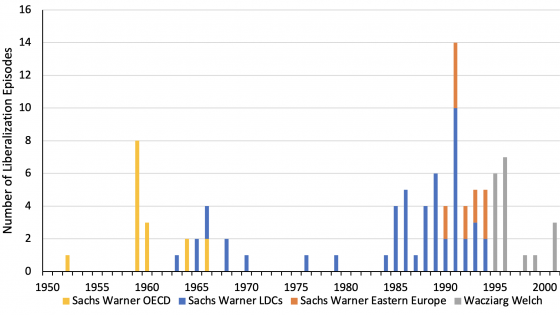DP3352 Conditional Political Budget Cycles
This Paper uses a large new panel data set to examine the relationship between elections and fiscal policy. We find clear evidence of political business cycles in macroeconomic policy: spending increases before elections while revenues fall, leading to a larger deficit in election years. We also show that there are large systematic differences between developed and developing countries in the size and composition of the electoral policy cycles. We propose a moral hazard model of electoral competition to explain these differences. In the model, the sizes of the electoral budget cycles depend on the rents of remaining in power and the share of informed voters in the electorate. Using suitable proxies, we find that these institutional features explain a large part of the difference in policy cycles between developed and developing countries.


